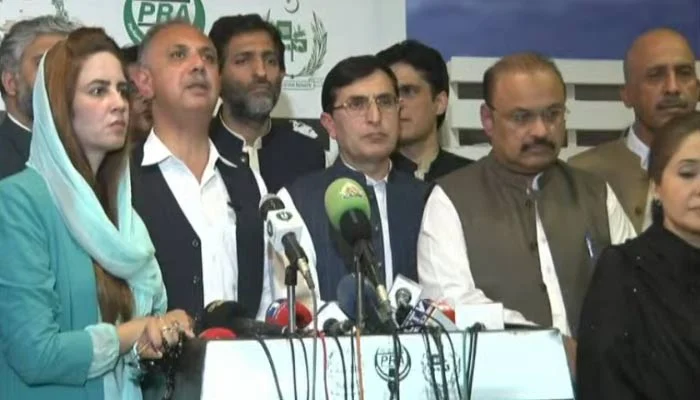PTI has voiced a strong demand that the federal government refrain from launching “cross-border” attacks into Afghanistan, citing concerns over escalating terrorism. Defence Minister Khawaja Asif recently hinted at potential anti-militancy measures in Afghanistan during an interview with a US media outlet.
The government’s proposed actions aim not only to curb economic losses from smuggling oil, fertilizers, and other goods from Afghanistan but also to prevent terrorist infiltration and bolster border security.
Following the Defence Minister’s statements, senior opposition leaders convened an emergency meeting in the National Assembly. Members emphasized non-interference principles, stating, “We reject interference in our country and must avoid intervening in others.”
Opposition figures criticized Asif’s rhetoric, warning of strains on Pakistan-Afghanistan relations and regional peace. PTI leader Qaiser cautioned against treating Afghanistan akin to India, stressing that cross-border attacks could escalate conflict.
Omar Ayub, opposition leader in the NA, highlighted the complexities faced by major powers in Afghanistan, underscoring its strategic importance.
During a media briefing outside parliament, Ayub questioned why the Defence Minister didn’t discuss potential actions against India, asserting PTI’s stance against involvement in external conflicts. He emphasized constitutional adherence for sustainable investment.
Meanwhile, PTI Chairman Barrister Gohar criticized Asif for not consulting the assembly before his remarks, highlighting democratic principles. Gohar expressed concern that such statements could tarnish Pakistan’s global image.
PTI leader Zartaj Gul raised questions about Pakistan’s foreign policy alignments, critiquing what she called an “irresponsible dialogue” by the Defence Minister.
PTI and Jamiat Ulama-e-Islam-Fazl (JUI-F) have opposed the anti-militancy initiative, demanding parliamentary oversight.
Recently, the Central Apex Committee approved “Operation Azm-e-Istehkam,” a revitalized counter-terrorism effort under the National Action Plan (NAP).
Asif defended the government’s decision, linking terrorism to economic stability and emphasizing the need for international law enforcement along the Afghan border. He highlighted recent cross-border attacks using advanced weaponry.
Asif announced stringent border controls, requiring valid passports and visas for entry into Pakistan from Afghanistan, aiming to curb illegal activities.


